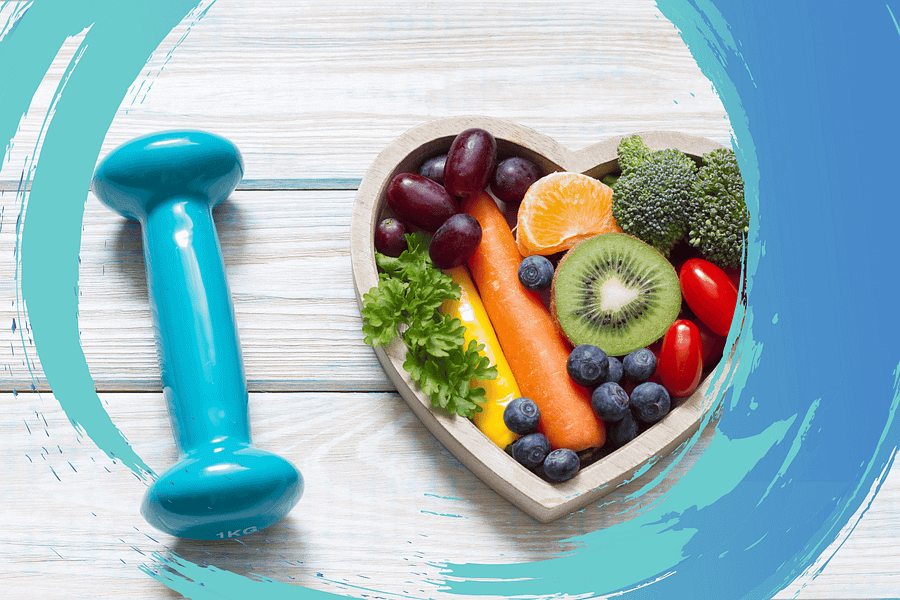Preparing for Egg Freezing: Lifestyle Guidelines on What to Embrace and Avoid
Whether you’ve chosen to freeze or are still pondering the decision, you might wonder about preparing for the egg freezing process. Are there certain recommendations you should know about?
In this blog, we outline what you should consider and the changes you can make in the months and weeks before beginning your egg freezing journey.
What Can Affect Egg Quality?
Egg quality is impacted by one’s age, genetics, and environment. It typically begins to decline after age 35. Certain conditions may also impact egg quality, such as early menopause or chromosomal abnormalities. On top of this, our diet and lifestyle choices play a role.
Environmental and lifestyle factors that may impact egg quality include:
- Alcohol consumption
- Smoking and recreational drugs
- Exercise
- Diet
- Stress levels
- Pollution
- Certain medications
Below, we’ll explore some of these lifestyle factors further, helping you set the stage for success.
Alcohol and Egg Freezing
Whether you are planning to freeze your eggs or start fertility treatment, alcohol can affect your hormones and reproductive health. Heavy consumption is often associated with lower egg quality and the chance of conception. While pregnancy isn’t the immediate goal of egg freezing, it can interfere with hormonal balance, which may disrupt the menstrual cycle and lead to issues with egg maturation.
If you have an event during your egg freezing process and expect to have 1-2 drinks, please chat with your EVOLVE nurse for guidance.
Can You Drink Coffee During Egg Freezing?
Rest assured that you don’t have to give up your morning cup of java before or during the egg freezing process. Minimization and moderation are key during the egg freezing process. Many experts recommend sticking to one cup of coffee daily (no more than 200 mg of caffeine) before and during the egg freezing process. Note that some coffee companies have more caffeine than others, so one serving at your local Tim Horton’s may translate into half a cup of coffee at Starbucks.
Does Smoking Affect Egg Quality?
Cigarette smoking can influence egg quality and ovarian reserve, potentially impacting the egg freezing process. Research suggests that smoking may alter ovarian function, affecting the number of eggs that can be frozen in each cycle.
Additionally, recreational drugs, including cannabis, might affect fertility and the success of the egg freezing process. If you’re regularly smoking or using other substances and have concerns about their impact on your egg health, reach out to a member of the EVOLVE team. They can offer guidance and support tailored to your individual needs and goals.
Exercise During Egg Freezing
At EVOLVE, a common question is: Can I exercise during the egg freezing process? Yes, you can, but you may need to adjust your routine temporarily.
As your egg freezing cycle progresses, avoid strenuous exercise and/or twisting or bending the torso. This is because the ovaries become increasingly enlarged, and the risk of ovarian torsion increases. Throwing on a pair of earphones and heading for a walk is a great way to get in your cardio leading up to treatment. It minimizes stress on the body, especially the ovaries, and helps ensure that multiple eggs reach maturity.
If you’re unsure about what you should and shouldn’t do as you prepare to freeze your eggs, consult with your medical team. They can advise you on what’s best for you and your situation.
Foods to Avoid During Egg Freezing
Being mindful of your nutrition is key before and during egg freezing. Some foods to avoid or limit during this time include:
- Processed foods: Including processed deli meats and pre-packaged items, these foods are often high in unhealthy fats, sugars, and additives, which can disrupt hormonal balance and increase inflammation.
- High-sugary beverages: Excessive sugar intake is associated with negative health outcomes and hormonal imbalances, meaning these are likely best to avoid or limit.
- Trans-fat foods: Foods, like fried foods, margarine, baked goods, and some chips, are high in trans fat which can cause inflammation. When consumed in excess, this can negatively impact your reproductive health.
- High-mercury fish: High levels of mercury may also negatively impact egg quality.
Supplements for Egg Freezing
Taking supplements 100 days before freezing your eggs may also improve your egg quality and outcomes. It takes approximately 100 days for premature follicles to develop into mature eggs. With that in mind, here are some general supplements you can consider (we recommend working with a fertility naturopath for personalized solutions):
- Coenzyme Q10 (CoQ10): CoQ10 is a powerful antioxidant that helps protect eggs from oxidative stress and supports mitochondrial function, which is vital for egg quality and energy production.
- Vitamin E: Vitamin E is an antioxidant that protects cells, including eggs, from oxidative damage and supports overall reproductive health.
- Inositol: Inositol, particularly myo-inositol, helps improve insulin sensitivity, can regulate menstrual cycles, and supports ovarian function.
- Vitamin D: Vitamin D plays a role in regulating the menstrual cycle and improving ovarian function. Adequate levels are associated with better fertility outcomes.
Can You Have Sex During the Egg Freezing Process?
It’s recommended to abstain from sex during the egg freezing process. However, gentle sexual activity may be okay. It’s important to be mindful of how you feel, especially considering the ovaries are enlarged during this time.
Post-retrieval, it’s often advised to avoid sexual intercourse for one to two weeks. This gives your body time to heal.
Do you have questions or concerns regarding your egg freezing process? Our caring and expert team at EVOLVE is here to help. Chat with an EVOLVE nurse for more information.
References
https://www.sciencedaily.com/releases/2021/06/210608203716.htm
https://pubmed.ncbi.nlm.nih.gov/24959808/
https://www.ncbi.nlm.nih.gov/pmc/articles/PMC10462228/
https://www.ncbi.nlm.nih.gov/pmc/articles/PMC9746951/
https://pubmed.ncbi.nlm.nih.gov/8885914/



